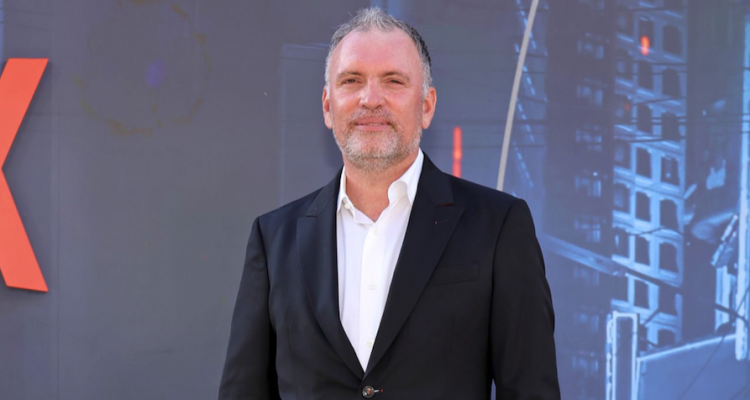Composer Henry Jackman has one of the most versatile resumes in film scoring, having the ability to mix classical scoring techniques with his experience as a record producer and electronic music creator. His versatility can be traced to his time studying classical music at Oxford, while simultaneously singing in the St. Paul’s Cathedral Choir and working in the underground rave scene.
With Netflix’s massively budgeted action film, The Gray Man, he found a new level of exploration… writing his first film cue without any footage. “If you really want to explore ideas, and come up with original ideas, the best space is away from picture,” Jackman shares. “Because you’re pursuing the logic of the ideas and you’re not boxed into what you’re seeing.”
Jackman spent eleven months on the now famous The Gray Man suite, which is seventeen minutes of pure sonic inspiration. The Russo Brothers, his longtime collaborators (Captain America Winter Soldier, Captain America Civil War, Cherry), were immediately enthralled with the piece.
Jackman used the suite and its themes as the basis for the score, and you can check out the piece in Netflix’s cool visualizer below —
Jackman spoke to Awards Focus regarding his film scoring approach, working with the Russo Brothers, and how evolving cuts of a film rarely effect his work.
Awards Focus: Having worked with the Russo Brothers for over a decade now, what are some of the elements that they gravitate to musically when it comes to scoring their films?
Henry Jackman: You know, most movies are a singular adventure with their own atmosphere and tonal requirements. For instance, The Gray Man is nothing like anything I’ve done with the Russo Brothers… even with the Captain America sequels, you’re starting with a new world each time.
AF: Editorially, The Gray Man is moving so fast in the action that it almost feels like there’s an electricity in every frame. Is that something that you try to match with the music or do you lean toward a counterintuitive approach?
Jackman: The funny thing on this film is that the seventeen minute piece at the opening of the soundtrack was actually written before I saw any picture. It’s a slightly unusual approach but my partner and I had your first kid in March 2021, so I took some time off and really worked on building this music world for The Gray Man away from picture. It was devised from reading the script and speaking with Joe and Anthony (Russo), but it was done without seeing a frame of the film.
AF: How much time did you put into the track in total, and did you find it more rewarding to write away from picture?
Jackman: Well I didn’t write every day so it’s hard to know, it felt a lot more like making a record because of all the engineering that went into the track, on top of writing the themes. It had a very handcrafted approach, particularly with the percussion sounds because I knew I had the time to really dig into it.
When I started the suite, I stared with piano and thought, “Well, I’ll just leave it at that.” But I just keep chipping away at the piece, it started at three minutes and it just kept going and went where it wanted to go.
If you really want to explore ideas, and come up with original ideas, the best space is away from picture because you’re pursuing the logic of the ideas and you’re not boxed into what you’re seeing. Often, scheduling doesn’t permit that type exploration unfortunately, so when you do have the opportunity it’s fantastic.
AF: With the ending being reshot for The Gray Man, how that effects your process when you’re scoring. Do you repurpose any of the closing music from the previous ending or always start fresh?Jackman: If there are reshoots on a film, particularly toward the end of the film, it often doesn’t effect the composer. My process is working through reel one, reel two, and so forth, so I’m quite behind what the directors and editors are focused on with the studio. Any issues with scenes toward the end, funny enough, are usually sorted out by when I finally get to them.


